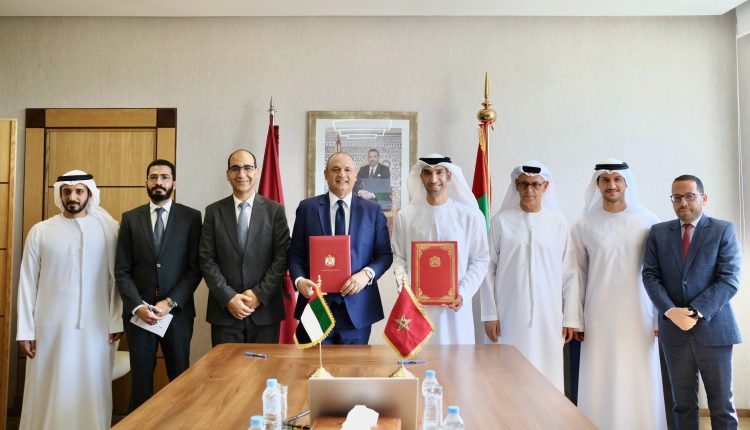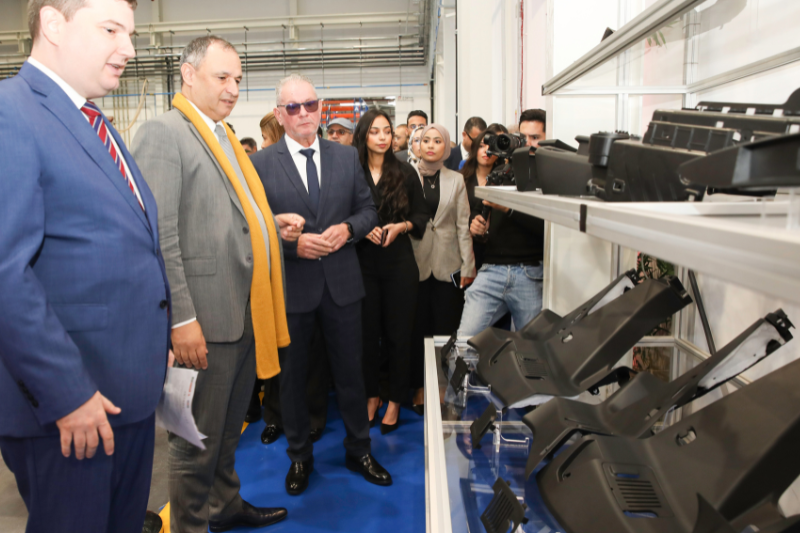The United Arab Emirates and Morocco have finalized the terms of a Comprehensive Economic Partnership Agreement (CEPA) that will usher in a new era of mutually beneficial trade and investment ties between the two countries, reported the UAE news agency WAM.
UAE Minister of State for Foreign Trade, Thani bin Ahmed Al Zeyoudi, and Morocco’s Minister of Industry and Trade, Ryad Mezzour, inked in Rabat on Saturday a joint statement confirming the conclusion of the negotiations.
Upon implementation, the UAE-Morocco CEPA will facilitate the free flow of goods and services by reducing or removing tariffs, eliminating unnecessary barriers to trade, improving market access for services, enhancing customs harmonization, and establishing flexible rules of origin for goods.
It will also establish platforms for investment and private-sector collaboration in priority sectors such as renewable energy, tourism, infrastructure, mining, food security, transport, logistics, and ICT.
The two nations’ trade amounted to $1.3 billion in non-oil trade in 2023, an increase of 30 percent compared to 2022 and 83 percent more than was recorded in 2019. The UAE is the largest Arab investor in Morocco with more than $15 billion invested in a variety of strategic projects, WAM underlined.
The two officials welcomed the conclusion of negotiations on the CEPA, which is part of the implementation of the Declaration signed by King Mohammed VI and President of the UAE Sheikh Mohamed bin Zayed Al Nahyan on 4th December, 2023 in Abu Dhabi. The Declaration was designed to establish an innovative, renewed, and solid partnership between the two brotherly countries.
“The UAE-Morocco Comprehensive Economic Partnership Agreement is a valuable addition to our CEPA program. Our two brotherly nations already enjoy strong bilateral economic relations, and this agreement will enable us to further develop areas of mutual benefit, particularly in sectors such as tourism, energy, manufacturing and agriculture, and generate long-term prosperity for both peoples,” Thani bin Ahmed Al Zeyoudi said, underlining that “Morocco is one of the largest and most competitive economies in Africa and we look forward to working in unison to create new opportunities for our private sectors.”
Ryad Mezzour on his part said that “the agreement, which strengthens the legal arsenal between the two countries, aims to support the development of trade and investment, by opening new opportunities to upgrade the level of joint cooperation in economic and commercial fields.”
Morocco is the sixth largest economy on the African continent. In 2023, its GDP was $152.4 billion and is expected to grow by a further 3.5 percent in 2024. While agriculture remains the largest employer, the services sector is the largest contributor to GDP accounting for 54 percent, with the industrial sector contributing 23 percent.
The UAE’s CEPA program aims to increase the country’s non-oil foreign trade to AED4 trillion by expanding relations with strategically important markets around the world. In 2023, the UAE’s non-oil trade in goods reached an all-time high of $710 billion, a 12.6 percent increase on 2022 – and 34.7 percent more than 2021. Morocco is the latest African nation to conclude CEPA terms with the UAE, following Mauritius, Kenya and Congo-Brazzaville.



